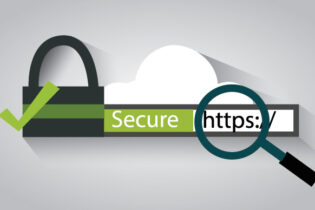
An SSL certificate for subdomains is often underestimated yet profoundly impactful. While securing your primary domain is well understood, this necessity also extends to its subdomains. It’s not merely an additional task; it’s an essential aspect of maintaining your site’s integrity and user trust.
Subdomains, those extensions of your primary domain designated for specific content or regional versions of your site, require encryption, just like the main domain. Without securing them, sensitive data exchanged between users and your site could be vulnerable to interception or manipulation.
So, what exactly are SSL certificates for subdomains, and what are their benefits?
Table of Contents
- What Is a Subdomain?
- What Is an SSL Certificate for a Subdomain?
- Do You Need Separate SSL for a Subdomain?
- Types of SSL Certificates for Subdomains
- Benefits of Using SSL Certificates for Subdomains
- How to Get an SSL Certificate for a Subdomain?
What Is a Subdomain?
A subdomain is a subdivision of a domain name used to organize and categorize content within a website. It functions as a separate entity from the main domain, with its unique address and distinct content, design, and users.
Technically, a subdomain is created by adding a prefix to the main domain in the DNS (Domain Name System) settings, indicating to web servers to treat it as a distinct section of the site.
For example, consider the website “yourdomain.com”. If a separate section, such as a blog, is desired, a subdomain like “blog.yourdomain.com” can be created. This subdomain operates independently from “yourdomain.com,” allowing you to house specific content related to the blog under its own address.
Similarly, you can establish other subdomains like “shop.youronline.com” for an online store or “support.youdomain.com” for customer service, each serving a unique purpose within the broader website.
In essence, subdomains facilitate the organization and management of various sections or functions of a website under a single primary domain, enhancing navigation and accessibility for users.
What Is an SSL Certificate for a Subdomain?
An SSL certificate for a subdomain secures communication between the user’s browser and the subdomain’s server, protecting sensitive data from interception or tampering.
When you have multiple subdomains under a single domain, you can use a single wildcard certificate to secure all your subdomains under one SSL installation. This wildcard certificate covers unlimited first-level subdomains of a primary domain.
For example, if your domain is “yourdomain.com,” and you have subdomains like “blog.youdomain.com” and “shop.yourdomain.com,” a wildcard SSL certificate would secure both subdomains along with the main domain. It’s more efficient than buying separate SSL certificates for each subdomain.
Wildcard SSL certificates are ideal for organizations with multiple subdomains or ones that create new subdomains frequently. They provide complete SSL protection across all subdomains under a single domain.
When requesting a wildcard SSL certificate, add an asterisk (*) before your Fully Qualified Domain Name (FQDN) during CSR generation. Here’s how it would look in your CSR: *.youdomain.com.
Do You Need Separate SSL for a Subdomain?
You need a separate SSL certificate for a subdomain if you use a standard single-domain SSL certificate that doesn’t cover subdomains. A wildcard SSL certificate or a multi-domain SSL cert can secure multiple subdomains. However, a wildcard certificate prevails as it protects unlimited subdomains compared to a maximum of 250 in the case of multi-domain certificates.
Sometimes, you start a website without subdomains but later add a few to expand content and online presence. In this instance, it might be cheaper to get a Wildcard certificate. This way, you’ll secure additional subdomains anytime you need them, reducing the cost and the configuration time.
Types of SSL Certificates for Subdomains
Now, let’s explore the two primary types of SSL certificates for subdomains: Domain Validation wildcard certificates and Organization Validation wildcard SSL.
Both use the same encryption technology to secure subdomains, but their distinctive validation processes offer different levels of trust.
Understanding how they function, their benefits, and their limitations will help you select the right option for your project.
Domain Validation Wildcard SSL Certificates
Domain Validation wildcard certificates are an affordable and efficient solution to secure unlimited subdomains quickly. They verify domain ownership only and don’t require any additional paperwork. You can get them in a few minutes after passing Domain Control Validation (DCV).
These certificates encrypt your data using the same cryptographic algorithms as any other valid certificate. Their only downside is the basic trust level and small SSL warranty that comes along.
DV Wildcard SSL certs are perfect for personal websites, blogs, small businesses, and portfolio sites that use subdomains to deliver content.
Organization Validation Wildcard SSL Certificates
A more robust security solution for business websites and their subdomains is Organization Validation wildcard SSL certificates that also validate the authenticity of your business. Such a certificate is a viable option for e-commerce platforms, startups, NGOs, and medium-sized businesses.
OV wildcard certificates employ the same 256-bit encryption but confirm the legal credentials of your company, giving customers peace of mind when sharing their data on your domain and subdomains.
You must prove that your company is officially registered within a jurisdiction and has a physical presence to get an Organization-validated wildcard SSL. The vetting process usually takes 1 to 3 business days, but you can speed it up with an LEI Code.
You might wonder, what about Extended Validation Wildcard certs, do they exist? The answer is no. EV wildcard certificates don’t exist due to challenges in validating the legitimacy of organizations across multiple subdomains. The process would require extensive verification of each subdomain and could potentially weaken the trust associated with EV validation.
Benefits of Using SSL Certificates for Subdomains
With state-of-the-art encryption and convenient SSL management, SSL for subdomains is the flexible and cost-effective solution every complex website needs. Here are the benefits:
- Unlimited Subdomains. Wildcard SSL allows unlimited first-level subdomain protection under one certificate. It’s like a one-size-fits-all safety net, securing all subdomains in a flash. And, since all SSL certificates come with unlimited reissue and server licensing, you can protect newly added subdomains by simply reissuing the same SSL certificate.
So, whether you’re expanding your online presence or creating dynamic subdomains on the fly, securing them under one certificate ensures seamless protection without the hassle of buying and managing multiple certs. - High-end Encryption. Wildcard SSL certificates offer the latest cryptographic technology for your subdomains, ensuring your data’s integrity and confidentiality are never compromised. SSL certificates for subdomains employ advanced hash functions and encryption algorithms, like RSA or ECDSA, which provide strong encryption and secure key exchange.
They’re built on protocols like TLS 1.2 or the more recent TLS 1.3, providing an even more secure data transfer by strengthening encryption, improving speed, and reducing overhead. Wildcard certs also utilize SHA-2 hashing algorithms, which are currently considered unbreakable. - Convenient SSL Management. Wildcard certificates offer a seamless solution for managing SSL across multiple subdomains, providing unparalleled convenience for administrators. With just one certificate, you can secure as many subdomains as you need.
This feature streamlines the renewal process, as only a single SSL certificate needs updating, saving valuable time and effort. Moreover, configuring SSL for subdomains is effortlessly straightforward, as the wildcard certificate automatically covers all variations.
Wildcard certs reduce costs associated with managing individual certificates for each subdomain. You don’t have to buy separate SSL certificates for every subdomain you have or intend to add later. The all-in-one solution has no market alternatives, being the go-to option for individuals and organizations. - Affordable Option for Everyone. Affordable encryption solutions, such as SSL for subdomains, are no longer just for large corporations. These certificates offer cost-effective security measures accessible to individuals and businesses of all sizes. You can buy SSL for a subdomain in no time, protect your website from cyber thieves, and prevent browser security warnings.
With various wildcard certificates available to suit various budgets, protecting your online presence doesn’t have to strain your finances. Investing in a wildcard certificate ensures that sensitive data across your website remains secure without compromising your bottom line. - Flexible for every need. One of the most compelling advantages of using SSL certificates for subdomains is their adaptability to meet diverse security needs, providing a practical solution for websites of all shapes and sizes. Whether you have a personal site or a massive e-commerce platform, Wildcard certs can do their job just fine.
For those requiring even more flexibility, the multi-domain wildcard SSL certificate option can secure subdomains across multiple domains. Think of them as a two-in-one option: a multi-domain SSL certificate and a wildcard one merged. This level of adaptability and scalable solutions ensure the security of your online presence.
How to Get an SSL Certificate for a Subdomain?
The best way to get an SSL certificate for a subdomain is to buy it from a reliable SSL reseller such as SSL Dragon. You’ll enjoy a seamless purchasing experience and expert support, ensuring your website’s security without the hassle. Best of all, you’ll get the lowest price on the market as SSL resellers are the official distributors of CAs, offering year-long SSL deals and discounts.
Don’t compromise on your website’s security – take action now to protect your subdomains and enhance trust with your visitors. With our wide range of Wildcard SSL certificates, you can rest assured knowing that your data is encrypted and your online presence is secure.
FAQ
Does Standard SSL Cover Subdomains?
No, a standard SSL certificate covers one domain or a specific subdomain and does not secure all subdomains. If you need an SSL certificate for all subdomains, look for the Wildcard SSL option.
Which SSL Is Best for Subdomains?
The best SSL for subdomains depends on factors such as the type of website, budget constraints, and desired level of trust. The SSL Wizard can help you choose the ideal SSL certificate for your website.
How to Install an SSL Certificate for a Subdomain?
To install an SSL certificate for a subdomain, you must upload the certificate files provided by your Certificate Authority on your server. Check our SSL installation tutorials for your particular platform.
Bottom Line
Employing one SSL certificate for multiple subdomains safeguards vital data and instills a sense of trust among your users.
The versatility of these SSL certificates allows you to select the most fitting option for your specific requirements. Remember, a fortified subdomain keeps cyber-thieves away from your site. Moreover, you can secure multiple domains and subdomains with a single multi-domain wildcard certificate, enjoying the ultimate versatility.
Best of all, a variety of wildcard options are available, providing flexibility and smooth management of security measures across domains.
Save 10% on SSL Certificates when ordering today!
Fast issuance, strong encryption, 99.99% browser trust, dedicated support, and 25-day money-back guarantee. Coupon code: SAVE10



























